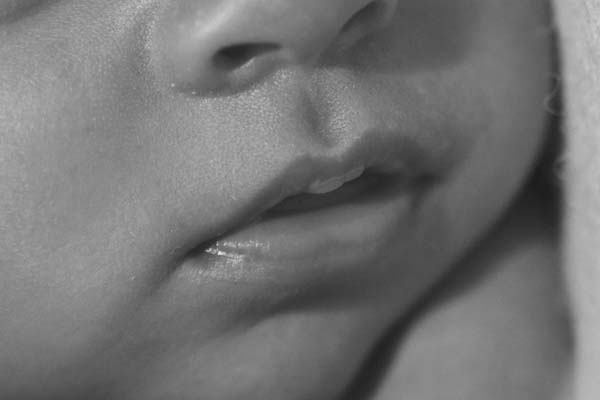What Is an Infant Frenectomy?

Infant frenectomy is a surgical solution to lip-tie or tongue-tie in infants. Some infants cannot chew, swallow, or breathe well due to the extra connective tissue that attaches the tongue or lips to the mouth. Statistics show that almost 10% of infants in the United States have lip-tie or tongue-tie. Your child’s dentist may notice it and recommend this corrective procedure. Here are the details to consider about infant frenectomy.
Lip-tie and tongue-tie
The lingual frenulum should detach on its own right before birth. This will then give the baby a good range of motion for eating and speaking. Studies show that some babies are born with excessive connective tissue that attaches the lip or tongue to the mouth. This inhibits proper eating and nursing. Correcting this problem must happen during the toddler stage.
Common signs of lip-tie or tongue tie are a heart-shaped tongue or the inability to move the tongue in front of the front teeth. In most cases, this condition is not obvious at all. It often takes weeks or even months for parents to find out why their child is not eating well. Some scientists believe that this condition is brought about by genetic factors.
When to have an infant frenectomy
A short and thick or elongated frenum restricts a baby’s tongue movements. Dentists refer to this condition as a tongue-tie. It can make breastfeeding problematic. Correcting this issue must happen before the child grows older.
Detecting a tongue-tie or lip-tie may happen only after the child starts schooling. An elongated frenum can prevent the tongue from extending to a normal length. Severe cases often cause painful and difficult swallowing. The dentist needs to perform an infant frenectomy right away. It is ideal to get this procedure within three weeks after birth. The surgery will be quick and will cause less pain.
An infant frenectomy must address an elongated labial frenum before the condition worsens. The procedure will impair the proper spacing and growth of the two upper front teeth. Braces can correct the dental gap when the child grows older. But sometimes, the gap remains even after wearing braces. This situation will need a labial frenectomy.
The infant frenectomy procedure
This is a permanent solution to a lip-tie or tongue-tie. The dentist will examine the frena or frenum first before deciding to go on with an infant frenectomy. Non-invasive options will come first. But if the frenum is impairing the child’s speech or feeding, the young child must get an infant frenectomy.
A maxillary frenectomy removes the tissue that connects the front teeth to the upper gums. A lingual frenectomy will detach the tissue that connects the floor of the mouth and the tongue. Removing the excess tissue is necessary so that the baby can latch on during breastfeeding. Infant frenectomy can help the baby get all the important nutrients during the formative years.
Infant frenectomy will take 10-15 minutes. The recovery may last for about two weeks. Pain relievers can help manage the pain in the treated area. Proper aftercare instructions can help the patient recover well.
A dentist can use lasers to perform an infant frenectomy. This technique will not result in any bleeding because the laser’s heat will close the wound right away. Many parents prefer laser treatments over traditional surgical options because they do not need stitches. There is also less swelling and pain.
Laser infant frenectomy also reduces infection. It sterilizes the area, which speeds up the healing. Babies can then breastfeed right away after a laser infant frenectomy. The results can give infants the nutrients necessary for their early development. This can give any doting mother peace of mind.
Helping the baby
Regular early dental checks can help detect possible tongue-tie or lip-tie. This can help the parents decide on getting an infant frenectomy right away. The dentist may even detect both lip-tie and tongue-tie in the evaluation. Correcting the problem can help the baby sleep and eat well. This can give the child an edge during the developmental stages.
Infant frenectomy is a healthy, life-changing procedure for babies and parents
It is easy to miss a lip-tie or tongue-tie, especially if you are a new parent. There are cases in which parents discover these problems only when the child starts schooling. This could cause problems with the child’s eating and speaking. Regular dental checkups can catch either or both conditions early. This can result in an immediate infant frenectomy that can help the child develop well. Working with your dentist can result in your child’s proper healing and recovery.
Request an appointment here: https://www.hvkidsmiles.com or call Hudson Valley Pediatric Dentistry at (845) 363-4177 for an appointment in our Middletown office.
Check out what others are saying about our services on Yelp: Read our Yelp reviews.
Recent Posts
Dental sealants are plastic coatings that protect teeth surfaces from decay. Since children are highly susceptible to cavities, pediatric dentists often recommend sealants to protect molars and premolars upon eruption. If you are considering this preventive treatment for your child, read on to learn more about the pros and cons of dental sealants.Tooth decay is…
Dental sealants safeguard the teeth against tooth decay by forming a barrier between bacterial plaque and the tooth enamel. The many tiny grooves on the surfaces of the back teeth may catch food particles. Since routine brushing cannot entirely remove them, they often stay there for an extended period. Cavities develop as a result of…
If a cavity develops and worsens, it could lead to the risk of a dental emergency due to an infection or severe discomfort. Dental sealants significantly reduce the risk of a dental emergency by helping to prevent cavities in vulnerable areas of teeth. Read on to learn how dental sealants can prevent a dental emergency…
Pediatric dentistry is a field of dental care that helps foster healthy oral habits in children and adolescents that can last a lifetime. By introducing young patients to regular dental care early on, these dental professionals and the patient's parents can set the foundation for strong, healthy teeth and gums. Here are five ways pediatric…


